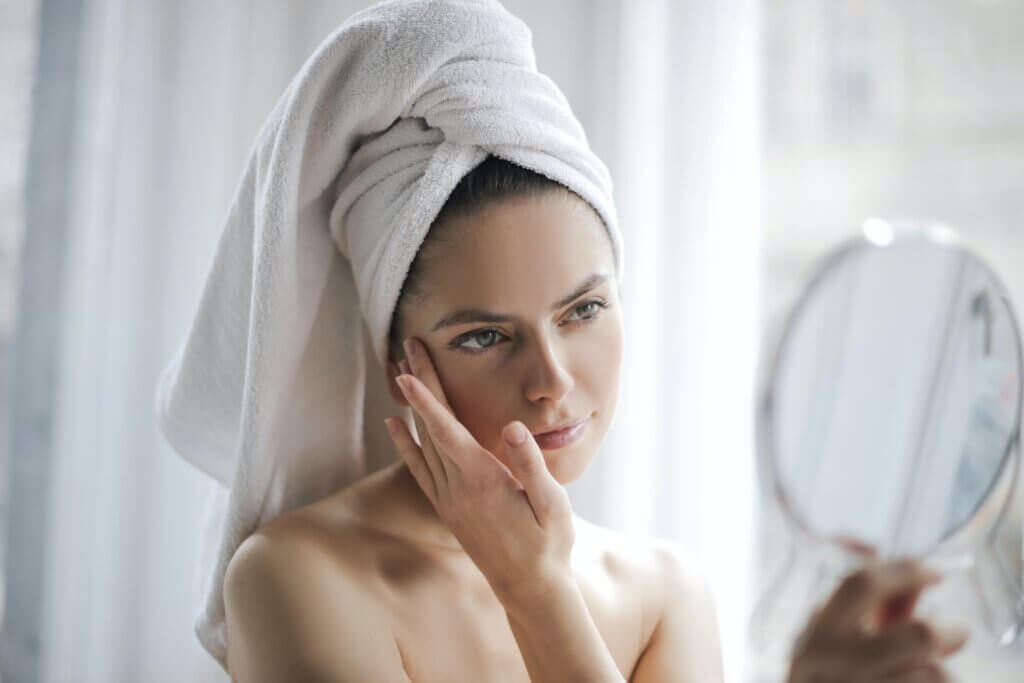There’s nothing more frustrating than acne and there’s nothing more infuriating than acne scarring. For some people, acne scars are not only bothersome but painful in many different ways. Fortunately, treatment for acne scarring is available so they don’t have to be permanent anymore!
The 3 Different Types of Acne Scars
The type of treatment you are recommended depends on the type of scarring you have. There are three types of acne scars:
- Atrophic Scars: These look like small indentations in the skin and appear when the skin is not creating enough fibroblasts (cells that heal and synthesise collagen) in the healing process.
- Hypertrophic Scars: Contrary to Atrophic Scars, Hypertrophic Scars happen when the skin makes too many fibroblasts when an acne spot heals, causing a raised scar to form.
- Keloid Scars: Very similar to Hypertrophic Scars, Keloid Scars are much thicker and surrounded by darker skin that appears red or brown. These types of scars can also itch and cause pain.
Looking at the treatments available for acne scars and some home remedies that can help you manage them as well, there are a few options available.
What treatments are available for acne scarring?
Acne scars can be tough to treat because some treatments do not work well for everyone. However, thankfully, there are many different treatments available to help.
The following treatments can improve the appearance of the skin, but qualification for these treatments requires analysis of skin type and severity of the scar itself:
- Botox: Acne scars can cause the skin around them to tighten and pucker. Using Botox, the skin is allowed to relax, and the appearance of the scar is also improved. This is a temporary treatment, so you must repeat treatment to retain the effect.
- Surgery: A minor procedure called punch excision can be used to cut out individual acne scars. The wound is then repaired using stitches or a skin graft. The doctor will insert needles under the skin to loosen the scar’s fibres. This is called subcision.
- Needling: Using a needled device, a doctor will stimulate the skin to form new collagen in the underlying tissue. This is a very effective and simple treatment for acne scarring, but it requires repeated treatments.
- Chemical Peel: A chemical solution is used on the scar tissue to remove the top layer and minimise its appearance. Repeated peels will maintain results but refrain from more than one deep peel.
- Dermabrasion: used for severe scarring, dermabrasion removes the top layer of the skin using a rotating brush device. This can remove surface scars and make deeper acne scars less noticeable.
- Light Therapy: Pulsed light therapy treatment can also make scars look less noticeable, but results are subtle and must be updated with repeat treatments.
- Laser Resurfacing: One of the most popular treatments for acne scarring, laser resurfacing removes the top layer of the skin whilst encouraging new and healthy skin to replace it through deep tissue activation.
- Steroid Injection: In some cases, a steroid injection into a raised scar can help improve its appearance.
- Fillers: Indented scars can be treated by injecting collagen or fat under the skin to plump it. This makes the scar less noticeable, but the results are temporary, so you must repeat treatment.
What home remedies are available for acne scarring?
There are also a few over-the-counter and at-home treatments available for acne scarring. They include:
- Salicylic Acid Cream: This cream is based on a naturally occurring compound that helps clear dirt, skin cells and other debris that causes acne. It also reduces swelling and redness and minimises the appearance of scarring. It can be used as a part of your daily routine.
- Retinoids: There is also evidence to suggest that topical retinoids help with acne scarring treatment. Topical retinoids block inflammation, reduce acne lesions and encourage cell regeneration. They also lighten acne scars. Retinoids make your skin sensitive to the sun, so pair this with some sunscreen.
- Natural Remedies: Whilst the science and proof are not yet clear behind home remedies, the ones traditionally used are coconut oil, shea butter, aloe vera gel and raw natural honey. These ingredients are usually used in a face mask, facial or scrub to treat the skin’s surface.
Acne Scarring Treatment in Conclusion
Many people live with acne scars daily, but the treatment and management options are here now. You no longer need to worry about the appearance of scars because they do not have to be permanent anymore.
If you aren’t having any success with home remedies anymore, seeking the advice of a dermatologist should be your next step. They can help assess and recommend the best medical treatment for you!



2 Comments
I had acne scarring on my face and I was really self-conscious about it. I tried a few different things to get rid of it but nothing seemed to work. I’m so glad I found this website! I finally found a treatment that worked for me and now my skin is clear. I am so much happier now and I don’t have to worry about my scarring anymore.
I didn’t know that there were different types of scars and just by reading the descriptions I had atrophic scars and chemical peels definitely helped with the appearance. I try to have 1 once every two months and the results have been amazing.